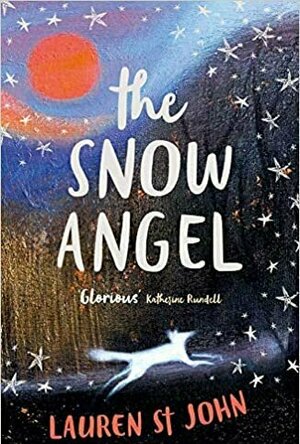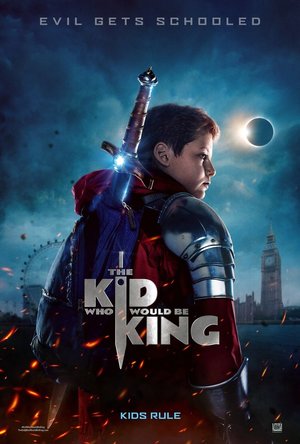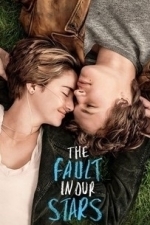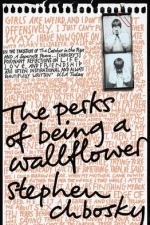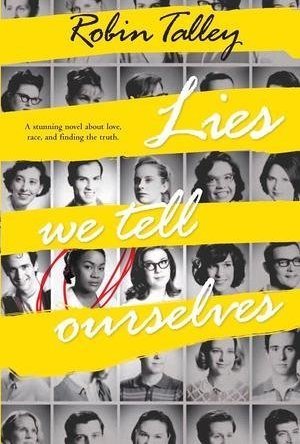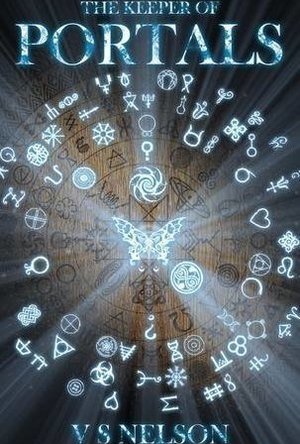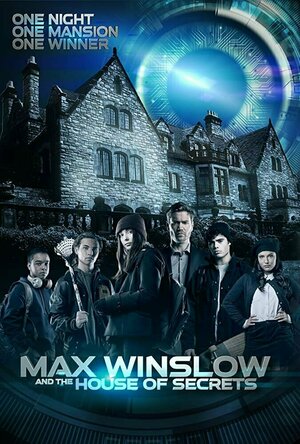Search
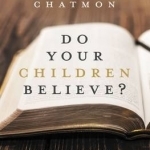
Do Your Children Believe?: Becoming Intentional About Your Family's Faith and Spiritual Legacy
Book
Are your children ready to live out their faith in the real world? Most parents who value Christian...
BookInspector (124 KP) rated The Snow Angel in Books
Sep 24, 2020
It tells a story of 11-year-old girl Makena, who lives in Nairobi, Kenya. Her parents died because of a cruel disease, leaving Makena an orphan. Due to some events, she ends up in the slum, where she meets her one true friend Snow.
I really enjoyed this book and its complex characters. The protagonist in this novel is Makena. She is a very smart person for an eleven-year-old. Her thoughts about life, survival and friendship were so inspiring to me, that’s why, I think, this book is superb for young readers. Makena teaches so many great values and shows great appreciation for things that matter in life. I really loved that the author chose such unique and original characters. They all had very intriguing personalities and their input in the story was irreplaceable. The story was mostly told from Makena’s perspective, and it was fully sufficient for me.
The narrative was absolutely gorgeous. It has a lot to offer to the reader, it is serious, educational but at the same time playful and magical. I think the author has done a great research for this book, and her personal experience was very well utilized in this novel. There is plenty of surprises in this story, which kept me glued to this book. I really loved the topics which the author was discussing, such as Ebola and its effects on the families they left behind, poverty and fight for survival, charity workers and their lives, and many more. The setting and atmosphere always change in this book, from Mount Kenya to slums, to the Scottish Highlands, so, your imagination will not be bored and will be taking you to various places…
I really enjoyed the writing style of this novel, I think it was very well crafted and I found it easy, and pleasant to read. The chapters are not very short, but for me, they just flew by because I was absorbed by the story itself. It has absolutely stunning illustrations by Catherine Hyde, and it makes the whole reading experience even more pleasant. I did enjoy the ending of this book, I think it rounded the story very nicely and gave the closure which left me very satisfied.
So, to conclude, this is a very beautiful story, filled with inspiring and motivating characters, who made me smile and cry on multiple occasions, and I do strongly recommend this book not only to children but to adults as well. There are plenty of things to learn from little Makena.
I really enjoyed this book and its complex characters. The protagonist in this novel is Makena. She is a very smart person for an eleven-year-old. Her thoughts about life, survival and friendship were so inspiring to me, that’s why, I think, this book is superb for young readers. Makena teaches so many great values and shows great appreciation for things that matter in life. I really loved that the author chose such unique and original characters. They all had very intriguing personalities and their input in the story was irreplaceable. The story was mostly told from Makena’s perspective, and it was fully sufficient for me.
The narrative was absolutely gorgeous. It has a lot to offer to the reader, it is serious, educational but at the same time playful and magical. I think the author has done a great research for this book, and her personal experience was very well utilized in this novel. There is plenty of surprises in this story, which kept me glued to this book. I really loved the topics which the author was discussing, such as Ebola and its effects on the families they left behind, poverty and fight for survival, charity workers and their lives, and many more. The setting and atmosphere always change in this book, from Mount Kenya to slums, to the Scottish Highlands, so, your imagination will not be bored and will be taking you to various places…
I really enjoyed the writing style of this novel, I think it was very well crafted and I found it easy, and pleasant to read. The chapters are not very short, but for me, they just flew by because I was absorbed by the story itself. It has absolutely stunning illustrations by Catherine Hyde, and it makes the whole reading experience even more pleasant. I did enjoy the ending of this book, I think it rounded the story very nicely and gave the closure which left me very satisfied.
So, to conclude, this is a very beautiful story, filled with inspiring and motivating characters, who made me smile and cry on multiple occasions, and I do strongly recommend this book not only to children but to adults as well. There are plenty of things to learn from little Makena.

Beautiful Bubbles
Entertainment and Games
App
Pop beautiful bubbles with your fingers using multi-touch. Unlike other bubble popping apps, this...

Tracing Lao Alphabet
Education and Book
App
Thank you for your support! More than 8,000 downloads! We always welcome your feedback, comments...
Lee (2222 KP) rated The Kid Who Would Be King (2019) in Movies
Feb 18, 2019
We've had plenty of spins on the legend of King Arthur over the years. Probably the most enjoyable for me was BBC show 'Merlin', which ran for 5 seasons between 2008 and 2012, focusing on the early life of the famous sorcerer and King Arthur. Probably the worst take on it all was Guy Ritchie's god awful 'Legend Of The Sword' back in 2017. Joe Cornish, writer/director of the brilliant 2011 movie 'Attack The Block', follows that movie with a fresh spin of his own in 'The Kid Who Would Be King'.
For those of us who are unfamiliar with the legend of Arthur, or who had it's memory tarnished by Mr Guy Ritchie, it's recapped for us here in a nice little animated sequence right at the start of the movie. It tells how the evil Morgana was banished to the underworld, vowing to return once more when the world is again divided and at its weakest.
We then join Alex (played by Louis Serkis, son of Andy Serkis), a 12 year old schoolboy living with his mother. He's having some trouble with bullies at school, made worse by his attempts to stand up to them as they terrorise his friend Bedders. One night, while fleeing from bullies Lance and Kay, he stumbles into a building site where he discovers a sword set in stone. He manages to pull it free and takes it home in his backpack, where he and Bedders determine that the sword is in fact the legendary Excalibur.
The next day a mysterious new boy joins them at school. Turns out, he is in fact Merlin, taking the form of a younger boy. He informs Alex and Bedders that they must form a team of knights in order to prepare for the imminent return of Morgana and her army of dead soldiers. They have just 4 days, with her arrival taking place during an upcoming solar eclipse. If they cannot stop her, then she will enslave the Earths inhabitants.
Alex believes that his father is key to all of this, and that he is in fact descended from Arthur, so he decides to go on a quest to Tintagel, the last place that he saw his father. Alex leaves a note for his mum - "Gone on quest to save Britain, don’t worry!” and begins 'knighting' Bedders, and eventually bullies Lance and Kay, as only those that have been knighted are able to see and fight the dead soldiers that come at night.
Their journey takes them via coach, through a portal at Stone Henge, and on a trek across the English countryside where they stop to allow Merlin time to provide them with the sword training they need in order to stand any chance of defeating Morgana. Merlin regularly changes his form, switching between young boy, an owl and his true elderly self (played by Patrick Stewart). In the form of a boy, Merlin is a little bit wacky, performing his magic with a series of clicking hand movements, something which became very annoying for me after the first few times. I get that this is a story about kids banding together and overcoming evil, but part of me just wishes that Merlin had stayed in his adult form of Patrick Stewart as I really wasn't so keen on the younger version at all.
It's also around this time, for a fairly lengthy period in the middle, that I felt the movie slowed and struggled a little. Thankfully though, things improved considerably for the final act, pulling everything together and delivering a hugely enjoyable finale. As the solar eclipse plunges their school into darkness, an army of armour clad school children battle the flame engulfed skeletal warriors and attempt to defeat the dragon-like Morgana. It's the kind of movie you'd love to watch as a child - no adults, just the kids rising up and overpowering evil. In fact, my daughter enjoyed this a lot more than I did, offering up her own 4.5 rating, so there you go!
I would have liked a little more from the great Patrick Stewart, and Rebecca Ferguson as Morgana isn't quite evil enough for me, but overall this is a really fun family movie and that's largely down to it's young stars, who are all fantastic. As shown in Attack the Block, Joe Cornish has a real skill for blending the ordinary with the fantastical and empowering his young characters with the traits of a hero or a leader.
For those of us who are unfamiliar with the legend of Arthur, or who had it's memory tarnished by Mr Guy Ritchie, it's recapped for us here in a nice little animated sequence right at the start of the movie. It tells how the evil Morgana was banished to the underworld, vowing to return once more when the world is again divided and at its weakest.
We then join Alex (played by Louis Serkis, son of Andy Serkis), a 12 year old schoolboy living with his mother. He's having some trouble with bullies at school, made worse by his attempts to stand up to them as they terrorise his friend Bedders. One night, while fleeing from bullies Lance and Kay, he stumbles into a building site where he discovers a sword set in stone. He manages to pull it free and takes it home in his backpack, where he and Bedders determine that the sword is in fact the legendary Excalibur.
The next day a mysterious new boy joins them at school. Turns out, he is in fact Merlin, taking the form of a younger boy. He informs Alex and Bedders that they must form a team of knights in order to prepare for the imminent return of Morgana and her army of dead soldiers. They have just 4 days, with her arrival taking place during an upcoming solar eclipse. If they cannot stop her, then she will enslave the Earths inhabitants.
Alex believes that his father is key to all of this, and that he is in fact descended from Arthur, so he decides to go on a quest to Tintagel, the last place that he saw his father. Alex leaves a note for his mum - "Gone on quest to save Britain, don’t worry!” and begins 'knighting' Bedders, and eventually bullies Lance and Kay, as only those that have been knighted are able to see and fight the dead soldiers that come at night.
Their journey takes them via coach, through a portal at Stone Henge, and on a trek across the English countryside where they stop to allow Merlin time to provide them with the sword training they need in order to stand any chance of defeating Morgana. Merlin regularly changes his form, switching between young boy, an owl and his true elderly self (played by Patrick Stewart). In the form of a boy, Merlin is a little bit wacky, performing his magic with a series of clicking hand movements, something which became very annoying for me after the first few times. I get that this is a story about kids banding together and overcoming evil, but part of me just wishes that Merlin had stayed in his adult form of Patrick Stewart as I really wasn't so keen on the younger version at all.
It's also around this time, for a fairly lengthy period in the middle, that I felt the movie slowed and struggled a little. Thankfully though, things improved considerably for the final act, pulling everything together and delivering a hugely enjoyable finale. As the solar eclipse plunges their school into darkness, an army of armour clad school children battle the flame engulfed skeletal warriors and attempt to defeat the dragon-like Morgana. It's the kind of movie you'd love to watch as a child - no adults, just the kids rising up and overpowering evil. In fact, my daughter enjoyed this a lot more than I did, offering up her own 4.5 rating, so there you go!
I would have liked a little more from the great Patrick Stewart, and Rebecca Ferguson as Morgana isn't quite evil enough for me, but overall this is a really fun family movie and that's largely down to it's young stars, who are all fantastic. As shown in Attack the Block, Joe Cornish has a real skill for blending the ordinary with the fantastical and empowering his young characters with the traits of a hero or a leader.
5 Minute Movie Guy (379 KP) rated The Fault In Our Stars (2014) in Movies
Jun 26, 2019 (Updated Jun 26, 2019)
Undoubtedly one of the great love stories of our time. (3 more)
Shailene Woodley and Ansel Elgort are a perfect match.
John Green's novel is brilliantly adapted to the silver screen.
This is a movie that will stay with you long after it's over.
On the surface, it's easy to dismiss The Fault in Our Stars as being a sappy teenage love affair, but I can fortunately say that this is one of the great love stories of our time.
Based on John Green’s popular young adult novel, The Fault in Our Stars is a film that is profoundly beautiful, eloquent and heartfelt. It tells of an extraordinary love between two unforgettable characters who are brought together by similarly ill-fated circumstances. Hazel Grace Lancaster and Augustus Waters are both victims of cancer. Although they do their best to hide it, these two young adults are each afraid of their ominous and unstable futures. They’re just trying to live purposeful lives and experience life like normal teenagers, but the looming threat of an untimely death impedes that desire. However, for a film filled with so much uncertainty, I can fortunately say that there is little doubt that The Fault in Our Stars is one of the great love stories of our time.
On the surface, it’s easy to dismiss The Fault in Our Stars as being a sappy teenage love affair. I’ll confess that I went into the theater expecting to be fully surrounded by crying teenage girls, while I would be quietly laughing to myself at their heartache. What I surely didn’t anticipate, however, was to be so deeply drawn into the film. Even more surprising is the fact that The Fault in Our Stars has actually turned out to be my favorite movie of the year so far. This is a film that is sincerely heartfelt and unflinchingly genuine. It brings truth to the romantic fantasies we have, and teaches us that we can’t let the fear of possible heartache hold us back from the endless potential of love.
Make no mistake about it, The Fault in Our Stars is a tear-jerker. It’s difficult to watch these lovable characters endure such unjustifiable hardship. Hazel and Augustus are each forced to face a formidable fate that they shouldn’t have to. I really felt a strong attachment to both of them, and found them to be remarkably identifiable. This connection makes it all the more unsettling when their situations turn dire. The reason that The Fault in Our Stars manages to be so effective is because of its authenticity and accessibility. The characters are not only admirable, but relatable. They’re not simply reduced to being unfortunate young cancer patients that we’re meant to feel sorry for. While of course we can sympathize with their condition, it is their compassion and the content of their characters that make them so compelling.
While the film features its fair share of tragedy, I should make it clear that it’s not heart-wrenchingly malicious in the way it deals with its ensuing sadness. This is not a film that is deliberately trying to make anyone feel bad. It is merely being honest in its depiction of the unfairness that often exists in life. While you very well might cry when watching the film, it’s not entirely depressing and hopeless. In fact, I would argue that The Fault in Our Stars is more pleasant than painful. The sadness it makes you feel ends up all being worthwhile because of the joyous, unforgettable memories the movie creates along the way. This is a film that will stay with you long after seeing it. To answer the question you’re all wondering: no, the movie didn’t make me cry. Though my lack of tears is not a particularly good indicator of the emotional quality of the film. I don’t really allow myself to cry during movies, but I certainly came close, and it undeniably left me deeply touched and forever grateful that I watched it.
Being that this is a romance, I must warn you that this isn’t a movie for everyone. Truth be told, I’m a sucker for a good romance, but I’m aware not everyone has the patience for these kind of movies. The Fault in Our Stars is a slow-burning journey that takes its time to relish in the moments. It does this skillfully, maintaining a steady, balanced pace while building up to a powerful climax. Some may find the film to be a little too cutesy, but I think anyone who approaches it with an open-mind will find that it’s legitimately a really great film. My only real criticism of the movie involves the awkward return of a particular character towards the end of the movie. It makes for a rather unwelcome and perplexing intrusion, although it does at least help to set up the film’s wonderful ending.
John Green’s story is refreshing, witty, and modern. It is not only insightful in its depiction of love and life, but also offers an amazing attention to detail. It nails the feelings of love, and perfectly captures the life of being a teenager. The characters created by Green truly come to life in this film. Divergent star Shailene Woodley shines as Hazel, a young woman suffering from terminal thyroid cancer. Additionally, Ansel Elgort is incredibly charming as Augustus, a high school basketball star whose career ended short when cancer turned him into an amputee. The two of them are a perfect complementary match. Laura Dern also puts in a commendable performance as Hazel’s mom, a selfless, loving parent and companion. The film’s soundtrack is sensational. It’s appropriately fitting and delightful, featuring great work by artists such as Ed Sheeran, Birdy, and Ray LaMontagne. Every aspect of the movie comes together to produce a thoroughly poignant and relevant package.
The Fault in Our Stars is a film that speaks to our generation. It stares boldly into our fears of the eminent death that haunts us all, and makes no attempt to glamorize it. Even though it’s about a pair of teenagers, it’s not afraid to deal with mature content. It’s actually all the more engrossing and troubling because these two characters are young. They’re already facing a pivotal time in their lives and are learning to experience the world on their own accord, and yet their journeys are plagued by the callous complications of cancer. Their age gives the film a stronger emotional impact, emphasizing the preciousness of life and the importance of living it to the fullest. The Fault in Our Stars is a smart and stimulating movie, and just like its star characters, it is wholly worthy of remembrance.
(This review was originally posted at 5mmg.com on 7.12.14.)
On the surface, it’s easy to dismiss The Fault in Our Stars as being a sappy teenage love affair. I’ll confess that I went into the theater expecting to be fully surrounded by crying teenage girls, while I would be quietly laughing to myself at their heartache. What I surely didn’t anticipate, however, was to be so deeply drawn into the film. Even more surprising is the fact that The Fault in Our Stars has actually turned out to be my favorite movie of the year so far. This is a film that is sincerely heartfelt and unflinchingly genuine. It brings truth to the romantic fantasies we have, and teaches us that we can’t let the fear of possible heartache hold us back from the endless potential of love.
Make no mistake about it, The Fault in Our Stars is a tear-jerker. It’s difficult to watch these lovable characters endure such unjustifiable hardship. Hazel and Augustus are each forced to face a formidable fate that they shouldn’t have to. I really felt a strong attachment to both of them, and found them to be remarkably identifiable. This connection makes it all the more unsettling when their situations turn dire. The reason that The Fault in Our Stars manages to be so effective is because of its authenticity and accessibility. The characters are not only admirable, but relatable. They’re not simply reduced to being unfortunate young cancer patients that we’re meant to feel sorry for. While of course we can sympathize with their condition, it is their compassion and the content of their characters that make them so compelling.
While the film features its fair share of tragedy, I should make it clear that it’s not heart-wrenchingly malicious in the way it deals with its ensuing sadness. This is not a film that is deliberately trying to make anyone feel bad. It is merely being honest in its depiction of the unfairness that often exists in life. While you very well might cry when watching the film, it’s not entirely depressing and hopeless. In fact, I would argue that The Fault in Our Stars is more pleasant than painful. The sadness it makes you feel ends up all being worthwhile because of the joyous, unforgettable memories the movie creates along the way. This is a film that will stay with you long after seeing it. To answer the question you’re all wondering: no, the movie didn’t make me cry. Though my lack of tears is not a particularly good indicator of the emotional quality of the film. I don’t really allow myself to cry during movies, but I certainly came close, and it undeniably left me deeply touched and forever grateful that I watched it.
Being that this is a romance, I must warn you that this isn’t a movie for everyone. Truth be told, I’m a sucker for a good romance, but I’m aware not everyone has the patience for these kind of movies. The Fault in Our Stars is a slow-burning journey that takes its time to relish in the moments. It does this skillfully, maintaining a steady, balanced pace while building up to a powerful climax. Some may find the film to be a little too cutesy, but I think anyone who approaches it with an open-mind will find that it’s legitimately a really great film. My only real criticism of the movie involves the awkward return of a particular character towards the end of the movie. It makes for a rather unwelcome and perplexing intrusion, although it does at least help to set up the film’s wonderful ending.
John Green’s story is refreshing, witty, and modern. It is not only insightful in its depiction of love and life, but also offers an amazing attention to detail. It nails the feelings of love, and perfectly captures the life of being a teenager. The characters created by Green truly come to life in this film. Divergent star Shailene Woodley shines as Hazel, a young woman suffering from terminal thyroid cancer. Additionally, Ansel Elgort is incredibly charming as Augustus, a high school basketball star whose career ended short when cancer turned him into an amputee. The two of them are a perfect complementary match. Laura Dern also puts in a commendable performance as Hazel’s mom, a selfless, loving parent and companion. The film’s soundtrack is sensational. It’s appropriately fitting and delightful, featuring great work by artists such as Ed Sheeran, Birdy, and Ray LaMontagne. Every aspect of the movie comes together to produce a thoroughly poignant and relevant package.
The Fault in Our Stars is a film that speaks to our generation. It stares boldly into our fears of the eminent death that haunts us all, and makes no attempt to glamorize it. Even though it’s about a pair of teenagers, it’s not afraid to deal with mature content. It’s actually all the more engrossing and troubling because these two characters are young. They’re already facing a pivotal time in their lives and are learning to experience the world on their own accord, and yet their journeys are plagued by the callous complications of cancer. Their age gives the film a stronger emotional impact, emphasizing the preciousness of life and the importance of living it to the fullest. The Fault in Our Stars is a smart and stimulating movie, and just like its star characters, it is wholly worthy of remembrance.
(This review was originally posted at 5mmg.com on 7.12.14.)
Heather Cranmer (2721 KP) rated The Perks of Being a Wallflower in Books
Jun 6, 2018
(This review can be found on my blog <a href="http://themisadventuresofatwentysomething.blogspot.com">The (Mis)Adventures of a Twenty-Something Year Old Girl</a>).
Okay, so I'd been wanting to read The Perks of Being a Wallflower by Stephen Chbosky since I heard about the film. Everyone went on about how great the book was, and I knew that I had to read it. There was one major thing that bothered me, but on the whole I loved it!
Charlie is a freshman in high school and is a little bit of a geek. This is the coming of age of Charlie as he writes letters to unknown friend. Together, we experience the highs and lows of one year of his life in which he does a lot of firsts and finds out some important information about himself.
I like the title of this book. I really do. Our main character is a big time wallflower, and he does discover that it has its perks. Therefore, the title really explains the books. I also think it's quite an original title and an interesting sounding one at that.
The cover of this book is quite simple yet it just kind of works. I think that if there would've been more on the cover, it would've lost its appeal.
Chbosky did an excellent job with the world building. Reading this book, it took me back to my high school days. I thought the author did a great job in capturing the essence of high school kids. I also love how the narration of the story was told through letters.
I thought the pacing was spot on. I would've finished this book in less than a day if real life hadn't have got in the way! I devoured every word, and I couldn't wait to find out what Charlie would experience next.
As for the dialogue, I thought it did sound like a bunch of teenagers talking to one another which is was supposed to. However, the way Charlie spoke bugged me a bit. His dialogue (both internally and to the other characters) made him sound like he was either really young or a bit slow. Perhaps this was done on purpose, and I'm missing the point completely. There are references to sex, drugs, and the like so please keep this in mind when deciding if this is the book for you as I know some people might not like reading about that. As for swear words, I think there may've been only one, but it wasn't a bad swear word.
As stated in the previous paragraph, I felt that the character of Charlie seemed to be either slow or really young. I'm not saying that he was a poorly written character because he wasn't. He just came across as too naive on most things to feel believable a lot of the time. He is meant to be 15 year old, yet he acts, speaks and thinks more like a 10 year old. Maybe this was just me, but that really bugged me! However, I did love Sam and Patrick. I loved how feminine and sweet Sam came across as, and I loved how big of a personality Patrick had. I would have to say that Patrick was probably my favourite character in the book.
The Perks of Being a Wallflower was definitely an enjoyable read for me. I think if Charlie would've acted more like his age, it would've been a tad bit better.
I'd recommend this book to everyone aged 14+ that enjoys reading about the ups and downs of life as well as those adults who want to remember their high school years.
Okay, so I'd been wanting to read The Perks of Being a Wallflower by Stephen Chbosky since I heard about the film. Everyone went on about how great the book was, and I knew that I had to read it. There was one major thing that bothered me, but on the whole I loved it!
Charlie is a freshman in high school and is a little bit of a geek. This is the coming of age of Charlie as he writes letters to unknown friend. Together, we experience the highs and lows of one year of his life in which he does a lot of firsts and finds out some important information about himself.
I like the title of this book. I really do. Our main character is a big time wallflower, and he does discover that it has its perks. Therefore, the title really explains the books. I also think it's quite an original title and an interesting sounding one at that.
The cover of this book is quite simple yet it just kind of works. I think that if there would've been more on the cover, it would've lost its appeal.
Chbosky did an excellent job with the world building. Reading this book, it took me back to my high school days. I thought the author did a great job in capturing the essence of high school kids. I also love how the narration of the story was told through letters.
I thought the pacing was spot on. I would've finished this book in less than a day if real life hadn't have got in the way! I devoured every word, and I couldn't wait to find out what Charlie would experience next.
As for the dialogue, I thought it did sound like a bunch of teenagers talking to one another which is was supposed to. However, the way Charlie spoke bugged me a bit. His dialogue (both internally and to the other characters) made him sound like he was either really young or a bit slow. Perhaps this was done on purpose, and I'm missing the point completely. There are references to sex, drugs, and the like so please keep this in mind when deciding if this is the book for you as I know some people might not like reading about that. As for swear words, I think there may've been only one, but it wasn't a bad swear word.
As stated in the previous paragraph, I felt that the character of Charlie seemed to be either slow or really young. I'm not saying that he was a poorly written character because he wasn't. He just came across as too naive on most things to feel believable a lot of the time. He is meant to be 15 year old, yet he acts, speaks and thinks more like a 10 year old. Maybe this was just me, but that really bugged me! However, I did love Sam and Patrick. I loved how feminine and sweet Sam came across as, and I loved how big of a personality Patrick had. I would have to say that Patrick was probably my favourite character in the book.
The Perks of Being a Wallflower was definitely an enjoyable read for me. I think if Charlie would've acted more like his age, it would've been a tad bit better.
I'd recommend this book to everyone aged 14+ that enjoys reading about the ups and downs of life as well as those adults who want to remember their high school years.
Hazel (1853 KP) rated Lies We Tell Ourselves in Books
Dec 17, 2018
<i>This ARC was provided by the publisher via NetGalley in exchange for an honest review</i>
<i>Lies We Tell Ourselves</i> by Robin Talley is a realistic tale about the beginning of the integration of coloured people into white schools in late 1950s America. In Virginia it is 1959 and ten Negros are beginning their first day at Jefferson Highschool. The experience is narrated from one of the ten, Sarah’s, perspective. In other parts of the novel the voice changes to that of Linda, a particularly nasty white girl, who is one of countless students opposed to integration.
Although many young people will have been taught about the black civil right movement it is still shocking to read about the horrible things they had to endure. By writing in the first person, Talley encourages the reader to try to understand how they would feel in a similar situation. Sarah and her friends instantly become the victims of verbal and physical abuse that members of authority turn a blind eye to.
To Sarah, Linda is a nasty spoilt bully who, although does not join in with the taunting and abuse, is as bad as the rest of them. Through reading Linda’s account it becomes clear that her behaviour has a lot to do with her home life, in particularly with her father’s attitude towards her. After being forced to partner Sarah for a French project Linda begins to question why there is so much emphasis on skin colour, however not wanting to be shunned by her own friends she keeps these thoughts to herself.
Sarah is also struggling to come to terms with her sexual preference for girls. It has been drilled into her that these thoughts are a sin. She hides her true feelings from everyone and constantly berates herself mentally for being “unnatural”. But it turns out she may not be the only one with these thoughts.
The lies referred to in the title are not the blatant or harmful lies but rather the lies the characters believe or even want to believe. Each chapter begins with a lie that reflects what is occurring in the novel at that time; for example “There’s no need to be afraid” and “I don’t care what they think of me.” This is an interesting way of telling the story as it emphasizes Sarah’s determination to keep going despite what she is subjected to. It also reveals the mental struggles she faces. On the other hand the lies disclose Linda’s conflicting feelings towards the South’s current situation and segregation laws.
Although not a religious novel, each part begins with the title of a Christian hymn. It was the norm for everyone to go to church and, despite the separate churches, was something black and white people did. Sarah and Linda have faith in God yet they both use the bible’s teachings for opposing arguments. The religious aspect also highlights Sarah’s self-hatred and belief that she has fallen into sin.
Unfortunately in today’s world there are still issues with racism and homophobia however after reading <i>Lies We Tell Ourselves</i> it is evident that these situations have vastly improved, at least in the Western world, since the 1950s. Without children such as Sarah going through these horrible experiences nothing would have changed. There would still be separate schools, slavery and inaccurate opinions about race inequality. America has a lot to thank these brave students who were the first to create mixed race schools.
Overall this is a brilliant book. Well written and realistic, it really draws the reader in to the characters’ stories. Although <i>Lies We Tell Ourselves</i> is a work of fiction, it is historically accurate and can teach a lot about America’s history to young adults today.
<i>Lies We Tell Ourselves</i> by Robin Talley is a realistic tale about the beginning of the integration of coloured people into white schools in late 1950s America. In Virginia it is 1959 and ten Negros are beginning their first day at Jefferson Highschool. The experience is narrated from one of the ten, Sarah’s, perspective. In other parts of the novel the voice changes to that of Linda, a particularly nasty white girl, who is one of countless students opposed to integration.
Although many young people will have been taught about the black civil right movement it is still shocking to read about the horrible things they had to endure. By writing in the first person, Talley encourages the reader to try to understand how they would feel in a similar situation. Sarah and her friends instantly become the victims of verbal and physical abuse that members of authority turn a blind eye to.
To Sarah, Linda is a nasty spoilt bully who, although does not join in with the taunting and abuse, is as bad as the rest of them. Through reading Linda’s account it becomes clear that her behaviour has a lot to do with her home life, in particularly with her father’s attitude towards her. After being forced to partner Sarah for a French project Linda begins to question why there is so much emphasis on skin colour, however not wanting to be shunned by her own friends she keeps these thoughts to herself.
Sarah is also struggling to come to terms with her sexual preference for girls. It has been drilled into her that these thoughts are a sin. She hides her true feelings from everyone and constantly berates herself mentally for being “unnatural”. But it turns out she may not be the only one with these thoughts.
The lies referred to in the title are not the blatant or harmful lies but rather the lies the characters believe or even want to believe. Each chapter begins with a lie that reflects what is occurring in the novel at that time; for example “There’s no need to be afraid” and “I don’t care what they think of me.” This is an interesting way of telling the story as it emphasizes Sarah’s determination to keep going despite what she is subjected to. It also reveals the mental struggles she faces. On the other hand the lies disclose Linda’s conflicting feelings towards the South’s current situation and segregation laws.
Although not a religious novel, each part begins with the title of a Christian hymn. It was the norm for everyone to go to church and, despite the separate churches, was something black and white people did. Sarah and Linda have faith in God yet they both use the bible’s teachings for opposing arguments. The religious aspect also highlights Sarah’s self-hatred and belief that she has fallen into sin.
Unfortunately in today’s world there are still issues with racism and homophobia however after reading <i>Lies We Tell Ourselves</i> it is evident that these situations have vastly improved, at least in the Western world, since the 1950s. Without children such as Sarah going through these horrible experiences nothing would have changed. There would still be separate schools, slavery and inaccurate opinions about race inequality. America has a lot to thank these brave students who were the first to create mixed race schools.
Overall this is a brilliant book. Well written and realistic, it really draws the reader in to the characters’ stories. Although <i>Lies We Tell Ourselves</i> is a work of fiction, it is historically accurate and can teach a lot about America’s history to young adults today.
Hazel (1853 KP) rated The Keeper of Portals in Books
Dec 17, 2018
<i>This ARC was provided by the author in exchange for an honest review </i>
Awaiting young adult readers in early 2017 is a fantasy story unlike any other. <i>The Keeper of Portals</i> is the debut novel of V.S. Nelson, the soon-to-be-published author with an imagination worth sharing. Incorporating the familiar concept of time travel into a new way of visualizing the world results in a story that will leave minds reeling.
Nelson’s theory is that every aspect of life has a keeper, a creature in charge of making sure their assigned element functions smoothly. There are the major keepers responsible for time, causality and other things that cannot be seen, yet objects as small as buttons have their own keeper, too. Humans, of course, are unaware of these keepers, therefore fifteen-year-old Martin Lockford initially believes he is going mad when the Keeper of Portals reveals his existence in Martin’s bedroom.
Martin and his mother, with nowhere else to go, have moved into a dilapidated manor once owned by a distant relative. Whilst exploring his new room, Martin is startled by a disembodied voice claiming to be the Keeper of Portals. Having not spoken to anyone for 400 years, Portals is eager to show off his role in the flowing of the unpredictable universe. The keeper’s task is to make sure each door leads to the correct place – something that he demonstrates by sending Martin to the <i>wrong</i> places. However, there is one door in the manor that he has been unable to open.
The very next morning, Martin awakes to discover the sealed door is no longer locked and, being the curious boy that he is, goes through to explore. The mystery door does not only transport Martin to a different place, it sends him back in time to 1623. Here he meets the young Isabel, a maid, who is intrigued with the inventions of the future, especially from a personal hygiene perspective. However, she is not the only one curious about the 21st century.
The irascible master of the manor is not who he initially seems. With the desire to control everything, he places Martin and Isabel in a grave predicament, trapping them in the 17th century. At risk of creating a paradox, Martin needs to return to his own time – a difficult feat in itself – however, with the Keeper of Portals missing, the master has caused many problems that need to be solved, otherwise a whole new future will be born.
Admittedly, it takes a while for the story to warm up – the reader may be introduced to the idea of keepers fairly early on, yet the key storyline does not reveal itself until much later. After perseverance on the reader’s behalf, <i>The Keeper of Portals</i>, becomes an exciting mix of fantasy and science fiction, cleverly thought out to create an unpredictable scenario. Adventure after adventure, until bittersweet conclusion, keeps readers engaged and compelled to read on long after bedtime.
Although Martin is the protagonist of the novel, Isabel’s role is equally important. Despite women in the 1600s being deprived on the rights they have in this day and age, Isabel is an intelligent, independent girl, perfectly able to handle everything that is thrown at her. She is an inspiration to teenage girls.
Written with teenage readers in mind, <i>The Keeper of Portals</i> is suitable for fantasy-loving adults, too. With equipoise of adventure and intellectual theory, as well as a touch of romance, it is definitely a book to look out for. V.S. Nelson writes with clarity, exuding remarkable intelligence; let us hope that there will be more from where this came from.
Awaiting young adult readers in early 2017 is a fantasy story unlike any other. <i>The Keeper of Portals</i> is the debut novel of V.S. Nelson, the soon-to-be-published author with an imagination worth sharing. Incorporating the familiar concept of time travel into a new way of visualizing the world results in a story that will leave minds reeling.
Nelson’s theory is that every aspect of life has a keeper, a creature in charge of making sure their assigned element functions smoothly. There are the major keepers responsible for time, causality and other things that cannot be seen, yet objects as small as buttons have their own keeper, too. Humans, of course, are unaware of these keepers, therefore fifteen-year-old Martin Lockford initially believes he is going mad when the Keeper of Portals reveals his existence in Martin’s bedroom.
Martin and his mother, with nowhere else to go, have moved into a dilapidated manor once owned by a distant relative. Whilst exploring his new room, Martin is startled by a disembodied voice claiming to be the Keeper of Portals. Having not spoken to anyone for 400 years, Portals is eager to show off his role in the flowing of the unpredictable universe. The keeper’s task is to make sure each door leads to the correct place – something that he demonstrates by sending Martin to the <i>wrong</i> places. However, there is one door in the manor that he has been unable to open.
The very next morning, Martin awakes to discover the sealed door is no longer locked and, being the curious boy that he is, goes through to explore. The mystery door does not only transport Martin to a different place, it sends him back in time to 1623. Here he meets the young Isabel, a maid, who is intrigued with the inventions of the future, especially from a personal hygiene perspective. However, she is not the only one curious about the 21st century.
The irascible master of the manor is not who he initially seems. With the desire to control everything, he places Martin and Isabel in a grave predicament, trapping them in the 17th century. At risk of creating a paradox, Martin needs to return to his own time – a difficult feat in itself – however, with the Keeper of Portals missing, the master has caused many problems that need to be solved, otherwise a whole new future will be born.
Admittedly, it takes a while for the story to warm up – the reader may be introduced to the idea of keepers fairly early on, yet the key storyline does not reveal itself until much later. After perseverance on the reader’s behalf, <i>The Keeper of Portals</i>, becomes an exciting mix of fantasy and science fiction, cleverly thought out to create an unpredictable scenario. Adventure after adventure, until bittersweet conclusion, keeps readers engaged and compelled to read on long after bedtime.
Although Martin is the protagonist of the novel, Isabel’s role is equally important. Despite women in the 1600s being deprived on the rights they have in this day and age, Isabel is an intelligent, independent girl, perfectly able to handle everything that is thrown at her. She is an inspiration to teenage girls.
Written with teenage readers in mind, <i>The Keeper of Portals</i> is suitable for fantasy-loving adults, too. With equipoise of adventure and intellectual theory, as well as a touch of romance, it is definitely a book to look out for. V.S. Nelson writes with clarity, exuding remarkable intelligence; let us hope that there will be more from where this came from.
Lee (2222 KP) rated Max Winslow and the House of Secrets (2019) in Movies
Oct 13, 2020
Max Winslow and the House of Secrets is a family film, very much in the vein of Charlie and the Chocolate Factory. Maxine Winslow (Sydne Mikelle), or Max for short, is our Charlie Bucket, coming from a single-parent family and living with a mother who is struggling with debt. Tech-savvy Max is also a skilled hacker, demonstrating this by taking control of her neighbours video doorbell and making it ring so that he comes running outside. Kind of like a modern-day Knock-Down Ginger.
Max heads into school, where we’re introduced to some more teens who are set to join her later on, including a social-media obsessed girl, a boy addicted to gaming and a boy who enjoys trolling people online. As they settle down at their desks, the face of eccentric billionaire Atticus Virtue (Chad Michael Murray) takes over all of the TV screens throughout the school. He tells them that five students are to be selected to spend the night in his high tech mansion, and undertake a series of games, with the winner becoming the new owner of the mansion. When the confirmation text messages start coming through to the student phones later that day, we already know most of those that receive the big green tick on their screens, so they head off to the mansion, ready to spend the night.
Atticus himself isn’t at the mansion to greet the group. Instead, an AI named Haven (voiced by Marina Sirtis) opens the door for them, orders a takeaway delivery and gives them their instructions for the night. Basically, whoever solves the most puzzles and earns the highest score wins the mansion!
The puzzles start off ridiculously hard, with a locked door requiring a six-digit code to open, and only three attempts allowed. Max spots three jars of candy in the room and automatically decides that the total pieces of candy in each jar can be combined into a six-digit number, obviously. And you’re not supposed to think about how she managed to get them in the right order, or why the plate of cookies on the table wasn’t included in the code…
From there, the points come a lot easier for the team, such as simply putting on a pair of sunglasses(!), before turning slightly sinister as the group separates and everyone heads off on their own. Haven begins to go a little bit rogue, although with her monotone delivery of thinly veiled threats, she never really comes across as scary as I think she is meant to be. The games become a way of showing each individual the error of their ways - narcissistic Sophia is trapped in a bathroom talking to her mirror reflection, which has now turned into a nastier version of herself, while others are trapped in VR scenarios designed to show them where they’ve gone wrong in life.
It’s at this point that the movie struggles. The VR recreations are mostly dull, while other scenes utilise some pretty dodgy VFX and there’s never any real feeling of peril or threat. The young cast, for the most part, give some pretty good performances. However, with a mediocre script, none of them is really given very much to work with. Consequently, some of them, particularly the character of Max, feel a little wasted, not fleshed out enough.
While entertaining at times, Max Winslow and the House of Secrets is too scary for young children and not dramatic or scary enough for adults to really enjoy. Hopefully, though, the teen audience that this is squarely aimed at will pick up on the strong moral messages at the heart of the movie and will manage to gain some enjoyment from it.
Max heads into school, where we’re introduced to some more teens who are set to join her later on, including a social-media obsessed girl, a boy addicted to gaming and a boy who enjoys trolling people online. As they settle down at their desks, the face of eccentric billionaire Atticus Virtue (Chad Michael Murray) takes over all of the TV screens throughout the school. He tells them that five students are to be selected to spend the night in his high tech mansion, and undertake a series of games, with the winner becoming the new owner of the mansion. When the confirmation text messages start coming through to the student phones later that day, we already know most of those that receive the big green tick on their screens, so they head off to the mansion, ready to spend the night.
Atticus himself isn’t at the mansion to greet the group. Instead, an AI named Haven (voiced by Marina Sirtis) opens the door for them, orders a takeaway delivery and gives them their instructions for the night. Basically, whoever solves the most puzzles and earns the highest score wins the mansion!
The puzzles start off ridiculously hard, with a locked door requiring a six-digit code to open, and only three attempts allowed. Max spots three jars of candy in the room and automatically decides that the total pieces of candy in each jar can be combined into a six-digit number, obviously. And you’re not supposed to think about how she managed to get them in the right order, or why the plate of cookies on the table wasn’t included in the code…
From there, the points come a lot easier for the team, such as simply putting on a pair of sunglasses(!), before turning slightly sinister as the group separates and everyone heads off on their own. Haven begins to go a little bit rogue, although with her monotone delivery of thinly veiled threats, she never really comes across as scary as I think she is meant to be. The games become a way of showing each individual the error of their ways - narcissistic Sophia is trapped in a bathroom talking to her mirror reflection, which has now turned into a nastier version of herself, while others are trapped in VR scenarios designed to show them where they’ve gone wrong in life.
It’s at this point that the movie struggles. The VR recreations are mostly dull, while other scenes utilise some pretty dodgy VFX and there’s never any real feeling of peril or threat. The young cast, for the most part, give some pretty good performances. However, with a mediocre script, none of them is really given very much to work with. Consequently, some of them, particularly the character of Max, feel a little wasted, not fleshed out enough.
While entertaining at times, Max Winslow and the House of Secrets is too scary for young children and not dramatic or scary enough for adults to really enjoy. Hopefully, though, the teen audience that this is squarely aimed at will pick up on the strong moral messages at the heart of the movie and will manage to gain some enjoyment from it.
